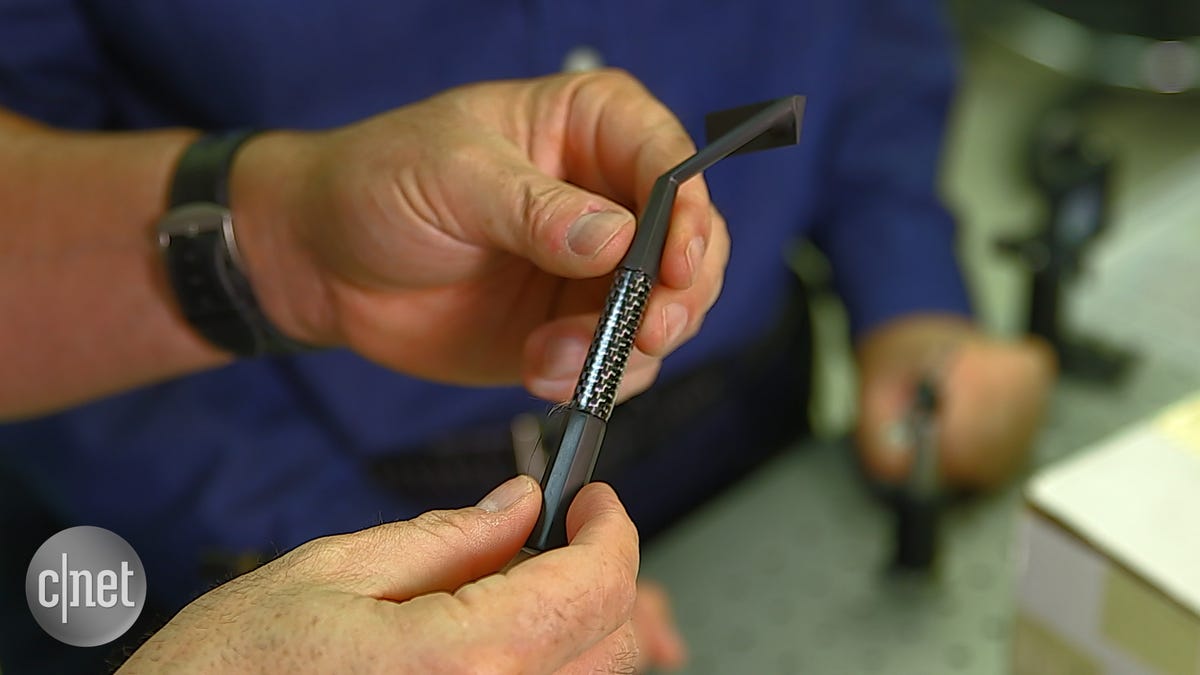What happened to the Laser Razor?
To some, it seemed like an obvious scam. Others believed. Now, Skarp's Laser Razor is months behind schedule. What's the story?

It sounded too good to be true. But last November, I showed you that shaving with a laser razor is as least plausible. We visited Skarp, a tiny startup with offices in California, which promised that, by March 2016, it would turn the dream of an irritation-free laser shave into reality.
But March came and went without a razor -- or even an update from the company. As with many a crowdfunded campaign, Skarp's backers started to become restless. Some thought Skarp had taken the money and run. Others wondered why their angry comments were being deleted from the Indiegogo crowdfunding website where Skarp had solicited that cash.
So I contacted Skarp to get a thorough update on the state of the project. Here's what I learned.
- Will King, founder of British shaving brand King of Shaves, has signed on with Skarp as chief marketing officer and adviser. To my surprise, King was the one who responded to my request for comment, and answered most of my questions. He had written about Skarp as a potential disruptive force in the world of shaving, and joined shortly after.
- Skarp's Laser Razor has officially been delayed until at least the end of 2016. King says the goal is to produce an initial prototype run of 5,000 units and ship those to backers by the end of the year, but he cautions that the date might slip even further.
- The prototype run should still be a full, working laser razor that provides "a close shave without causing razor burn," according to King.
- The primary delay was to develop and manufacture a new custom laser diode to better cut hair. King says Skarp now has a relationship with a custom diode manufacturer.
- There are still major hurdles to clear. While King says the engineering work has largely been done, company founder and CEO Morgan Gustavsson says remaining steps include testing and selecting the final blade (optical fiber) and diode, integrating those parts into the razor itself, and getting the device certified for shipment.
- Skarp believes the laser razor won't require medical certification, but rather will be treated as something akin to a laser pointer. "We have a test & certification road map and will swiftly go through that process with accredited bodies [when] the final blade configuration is chosen and mounted."
- Skarp admits to deleting some comments. "There have been some comments posted which probably the guys find more than unnecessarily offensive and have decided to take down," says King.
- Skarp will not offer refunds. "We expect to deliver the Laser Razor as promised, be it with the delays put in our way. We hope that everyone will be very happy when it arrives," says Gustavsson.
- Skarp will not promise regular updates to backers. While King says he's encouraging the team to share more about the process, he says they're still worried about potentially revealing secrets that competitors can use. He insists that they're hard at work: "It's not something where you backed it with your money and your money's gone."
- Skarp admits it overpromised regarding ship dates. "Perhaps it should have gone out more as a 'We need some help developing the technology to see if it works' instead of hard dates to ship the product," says King.
- King's primary role is finding investors for a mass-production run of the laser razor. "I'm not just in there as a marketing guy with a product that's yet to launch...most of my time is spent in an advisory capacity on people who want to be invested in this technology," says King.
If you're one of the roughly 2,700 backers who was hoping to shave with lasers by now, this news isn't terribly encouraging. For the rest of us, though, King's involvement sounds promising.
Once the next batch of blades arrives, Skarp hopes to share an update.

